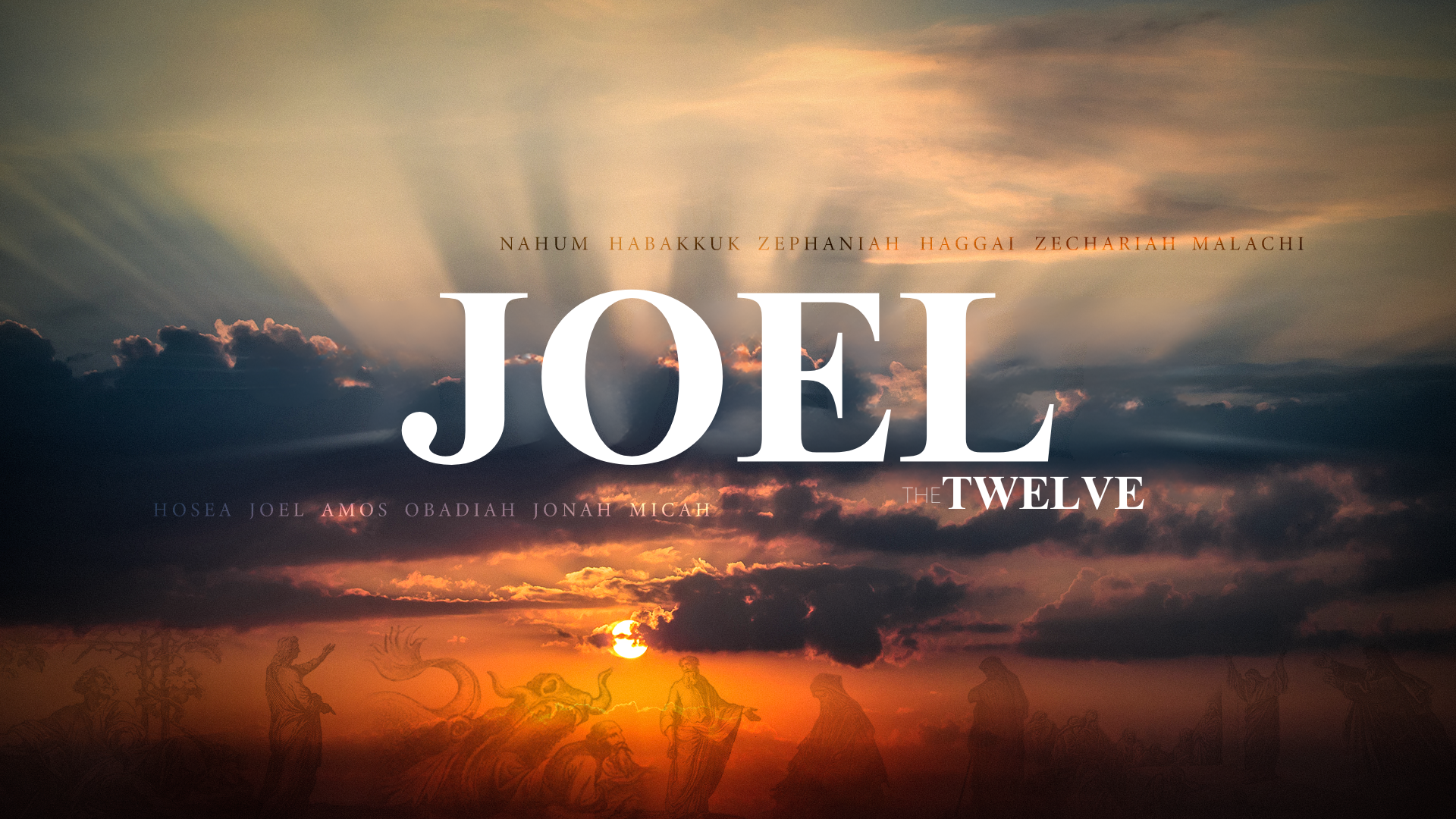Joel | God’s judgment and a call for repentance
Joel Overview
The Book of Joel is a short yet powerful prophetic book in the Old Testament that delivers a timeless message about judgment, repentance, and restoration. Though only three chapters long, Joel presents a dramatic vision of a locust plague as a warning from God, calls the people of Israel to heartfelt repentance, and offers a hopeful promise of spiritual renewal and future blessing. Central to Joel’s prophecy is the "Day of the Lord"—a theme that echoes through both warning and hope.
Historical Context
The exact date of Joel’s writing is uncertain, and scholars have debated its placement for centuries. Some suggest an early date (around the 9th century B.C.), while others place it much later, possibly after the Babylonian exile. Unlike other prophetic books, Joel does not mention specific kings or events, making it difficult to pin down historically.
Despite the uncertainty, the message is clear and timeless: when disaster strikes, God calls His people to return to Him, and when they do, He responds with mercy, healing, and restoration. Joel likely addressed his message to the people of Judah (the southern kingdom), focusing on the spiritual and covenantal responsibilities of God’s people.
Structure and Summary
The book of Joel can be divided into three major sections:
- A Plague of Locusts and the Day of the Lord (Joel 1:1–2:17)
- God’s Mercy and Restoration (Joel 2:18–27)
- Future Blessing and Judgment (Joel 2:28–3:21)
1. A Plague of Locusts and the Day of the Lord (Joel 1:1–2:17)
Joel opens with a vivid description of a devastating locust plague that has ravaged the land of Judah. He calls upon the elders and all people to witness the unprecedented destruction of crops, vineyards, and food supplies. The imagery is intense: what the cutting locusts left, the swarming locusts ate; what the swarming locusts left, the hopping locusts ate—and so on.
Joel interprets this natural disaster as a wake-up call—a symbol of the coming “Day of the Lord,” a time of divine judgment and reckoning. He urges the people, including priests and elders, to lament, fast, and cry out to God. The call to repentance is not superficial but deep and heartfelt: “Rend your heart and not your garments” (Joel 2:13). God desires inward transformation, not just outward ritual.
This section culminates in a passionate plea: “Return to the Lord your God, for He is gracious and compassionate, slow to anger and abounding in steadfast love.”
2. God’s Mercy and Restoration (Joel 2:18–27)
Following the call to repentance, the tone of the book shifts from warning to mercy. Joel assures the people that God responds to genuine repentance. The Lord becomes “jealous for His land” and has pity on His people. He promises to remove the invading army (whether literal or symbolic), restore their fortunes, and bring healing to the land.
God promises to send “grain, wine, and oil” once again, reversing the devastation. The people will have plenty to eat and will no longer be ashamed. This section emphasizes that God is not only just in judgment but also abundantly merciful and eager to bless those who return to Him.
One of the most encouraging promises appears in this section: “I will repay you for the years the locusts have eaten” (Joel 2:25). It’s a powerful message of restoration—not just of land and crops, but of time, hope, and purpose.
3. Future Blessing and Judgment (Joel 2:28–3:21)
Joel then looks beyond his immediate context to a future outpouring of God’s Spirit. This famous prophecy, quoted by Peter on the Day of Pentecost (Acts 2), says:
“And afterward, I will pour out my Spirit on all people. Your sons and daughters will prophesy, your old men will dream dreams, your young men will see visions” (Joel 2:28).
This outpouring represents a dramatic shift—God’s Spirit will no longer be limited to prophets or kings but will be available to all who call on His name. It signals the dawning of a new era in God’s relationship with His people.
Joel then shifts to a vision of judgment for the nations. In Joel 3, God gathers the nations in the "Valley of Jehoshaphat" (meaning “The Lord judges”) to hold them accountable for how they treated Israel. Those who scattered God’s people, traded them like property, and desecrated sacred things will face divine justice.
The book ends on a triumphant note. Judah and Jerusalem will be restored, and God’s presence will dwell with His people. “The Lord dwells in Zion,” the final verse declares, affirming that God’s kingdom and justice will ultimately prevail.
Key Themes
- The Day of the Lord – A central theme, referring both to near-term judgment (like the locust plague) and future divine intervention in history.
- Repentance and Mercy – God invites His people to return with sincere hearts, promising restoration and healing.
- Restoration – God can renew what has been lost and bless abundantly.
- The Holy Spirit – A future promise of God’s Spirit poured out on all people, fulfilled in the New Testament.
- Divine Justice – God will ultimately judge the nations and vindicate His people.
Conclusion
The Book of Joel is a profound call to repentance and a vision of hope. It begins with disaster but ends with renewal, reminding readers that even in times of crisis, God is near, responsive, and merciful. It calls God’s people to respond not just with ritual, but with genuine transformation—and assures them that restoration is always possible when they return to the Lord.


